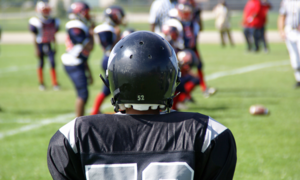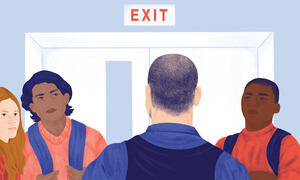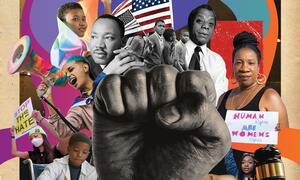2,242 Results
What Is Social Justice Education?
A truly just society is one in which all people have the resources to lead secure and fulfilling lives and the histories, cultures and experiences of diverse groups — especially those who have been historically marginalized — are respected.
The goal of social justice, therefore, is to ensure democracy in practice: “To create a society in which everyone has access to the resources and opportunities to develop their full capacities, and everyone is welcome to participate democratically with others to mutually shape social policies and institutions that govern civic life.”
- What Is Social Justice Education?
Celebrate Native American Heritage
Native American Heritage Month provides an opportunity to celebrate the diversity of Native cultures and communities. To honor Native peoples, we uplift their honest histories, significant contributions and contemporary experiences.
- Celebrate Native American Heritage
- Debbie Reese on Book Bans and Native Representation
- Celebrating African and Indigenous Cultures
Teach This: Native American Appropriation at the Super Bowl

Envisioning School Safety Without Police

Expanding Democracy

The Learning Center and Civics for Democracy
Introducing LFJ’s Learning Center, our new online popular education space for everyone (adults, youth and children), offering learning for civic and political action. The Learning Center continues our Community Justice Sites programming in our Southern states and extends our resources to a national audience. This new landing page and menu provides links to our new learning resources and series.
- Our Votes Matter: Action Steps in Planning to Vote
- Civics for Democracy
- The Learning Center
School Checklist
McCarthy: Enemy of the Negro People (excerpt, p. 14)
What the Numbers Don’t Show
